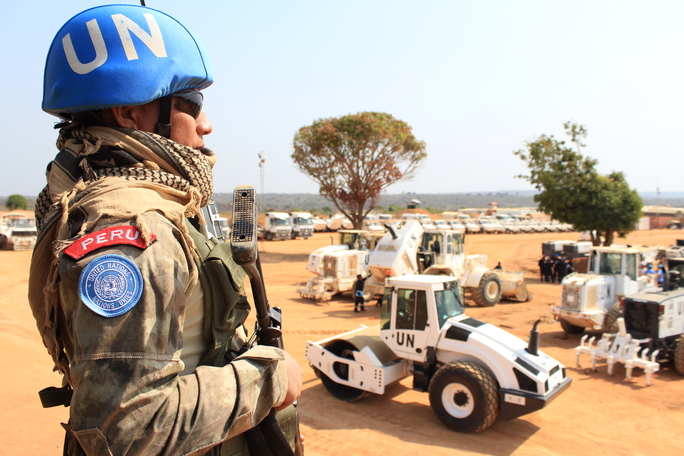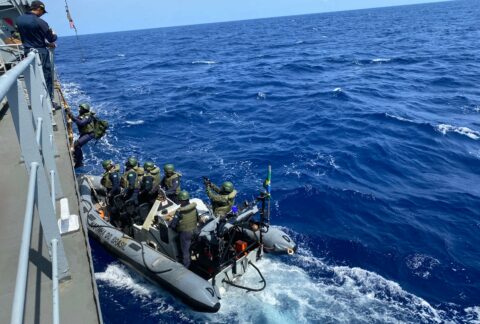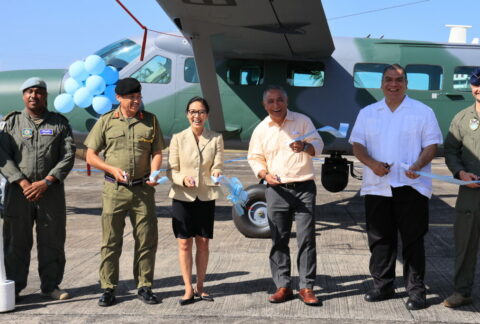On June 22, the Peruvian Armed Forces’ Joint Command reported that 27 women and 178 men of the Army, Navy, and Air Force, all members of the Peruvian Engineering Company, left to join the United Nations Multidimensional Integrated Stabilization Mission in the Central African Republic (MINUSCA, in French).
“You are leaving to give continuity to the contribution that our country is making in the Central African Republic, to protect the population, and support the transition process in place,” Peruvian Defense Minister Nuria Esparch said to the military contingent during the farewell ceremony.
To take part in peacekeeping missions, service members train via courses on airfield construction, enlistment in peacekeeping operations, and training in mobile teams, human rights, and tropical diseases, as well as language training, such as in French and English, Peruvian Army Lieutenant Colonel Alex Pérez Castillo, 2nd commander of the 5th Contingent, told Diálogo.

The Peruvian Engineering Company has been deployed in the Central African Republic since 2016 and is relieved every year, the Ministry of Defense reported. “During 2020 and part of 2021, Peruvian service members carried out road maintenance and construction tasks, repaired three bridges, prepared the land to set up the Bouar-Baoro Hospital, and helped in the construction of sports sites,” Lt. Col. Pérez said. “In addition, in Bouar, capital of the dNana-Mambéré prefecture, they built a heliport that serves as base of operations for a Bangladeshi aviation squadron, with three landing platforms, an apron, and loading/unloading areas.”
Lt. Col. Pérez highlighted the presence of female military personnel to protect the civilian population. “By having contact with vulnerable people, such as women and children, we can see that they are more open to interact with them [female service members], thereby facilitating support, reaching the objective, and building trust among the population,” he said.
Two out of three children in the Central African Republic need humanitarian assistance, and one in four children is displaced or a refugee, according to a 2018 UNICEF report.
Previous training in their countries of origin allows peacekeepers to be ready amid the ongoing conflicts in those regions, where rebel groups keep the population in constant distress, Lt. Col. Pérez said. “The purpose is to bring peace and security to these places,” he concluded.









